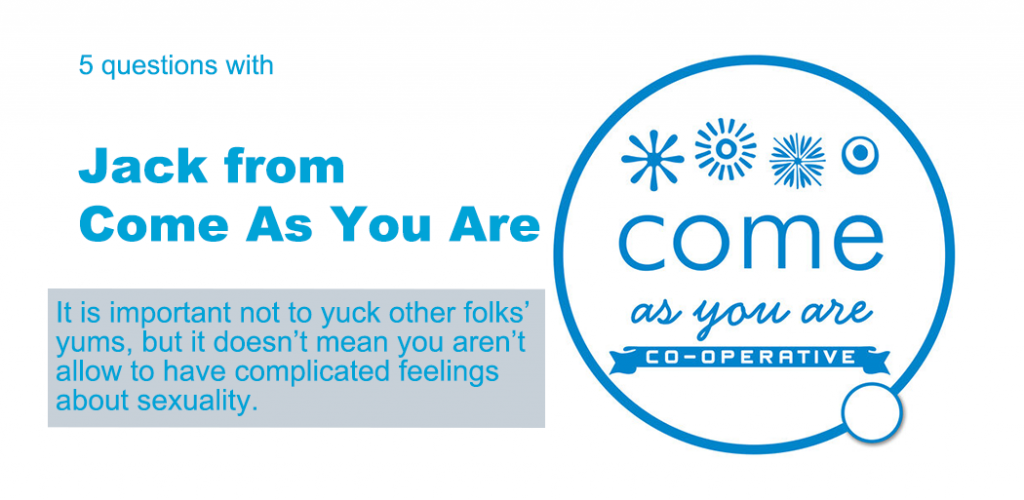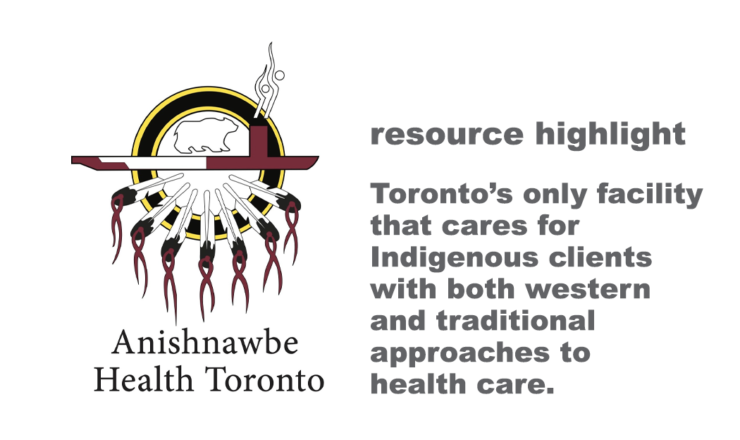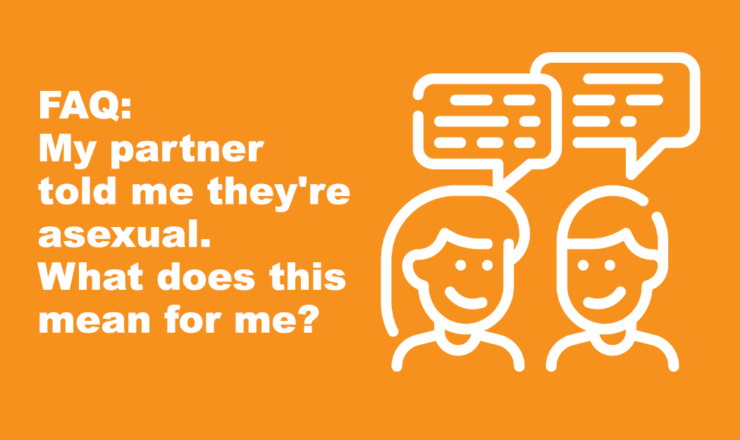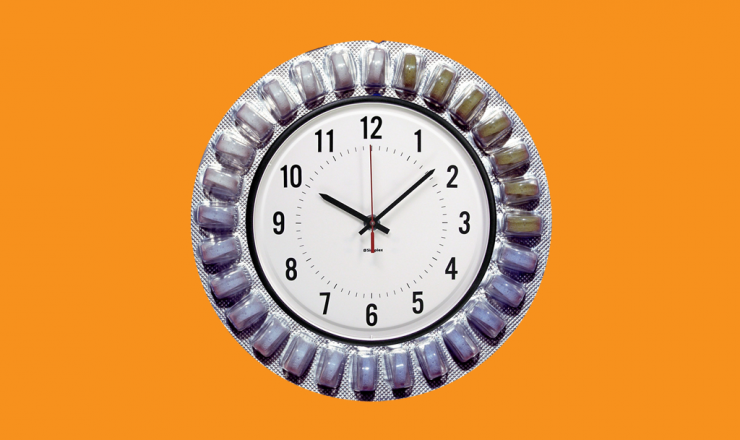

5 Questions is where Teen Health Source volunteers ask 5 questions to people about their unique perspectives on everything to do with sex and gender. In this instalment we interview Jack Lamon from the Toronto-based sex cooperative Come As You Are. We asked Jack to help out with some questions we had about what working in a sex cooperative is like, what customers want to know, and whether or not teens can even visit sex shops!
That is a hard question to answer. In Ontario, minors cannot purchase age-restricted materials (i.e. porn), but since most of the products we carry aren’t sexually explicit, we don’t have a unified in-store age policy at our co-op.
Unfortunately, most of the negative misconceptions people have about sex shops are actually true! Generally most sex shops are sleazy, poorly lit, and sell novelties designed to titillate and shame people about their sexualities. Most sex toys are low-cost and high-margin items – not designed for pleasure, but to generate profits.
However, there are a handful of feminist and otherwise ethical sex shops in Canada who sell good quality, body-safe products in a comfortable environment. At our shop, we do three weeks of intensive training with new hires, and our training was designed by an AASECT certified sex educator to ensure that the information we supply is as good and the sex products we stock!
Our most frequent question used to be ‘how do I find my g-spot’, but as vibrators become internet-enabled and more and more high-tech, our more frequent question has become ‘how do I turn this thing off?’ People also often ask after desensitization sprays – which are terrible because they inhibit the experience of pleasure and increase the risk of play by virtue of their numbing function – but then every question is just a great opening to a better conversation about lower-risk alternatives. We also find that we get a lot of questions about allergies to lubes and condoms, and we get a ton of questions about kegel exercises.
We generally restrict attendance at our workshops to people of age in Ontario, but honestly, I don’t think we’ve ever had anyone under 19 even try to register for one of our workshops. We do a lot of workshops on female ejaculation, non-monogamy and polyamory, BDSM and rope bondage, cunnilingus and fellatio, and we’re doing an amazing workshop this summer with Emily Nagoski about the science of sex.
When we launched back in 1997, I think the concept of ‘sex positivity’ made a lot of sense when contrasted with the ‘sex negativity’ of the feminist sex wars of the 1980s, but to be honest, I think the movement has outgrown the term. That is, sexuality is a source of negative spectrum feelings for the vast majority of people, and to paint everything with the brush of ‘sex-positivity’ essentially denies an essential truth about living within a sex-negative society. Further, these days, it seems that to be considered ‘sex-positive’, one needs to be down with all kinds of sex acts, and a hierarchy of sex-positivity seems to have developed. Which is all to say, it is not more or less sex-positive to be monogamous or not into BDSM. It is important not to yuck other folks’ yums, but it doesn’t mean you aren’t allow to have complicated feelings about sexuality.
But I digress…
Our primary goal as a collective is to create an environment that is as safe and comfortable as possible for the most number of people. We do this in several ways – we ensure that we let folks in our shop know that we’re happy to answer questions, we keep the shop nicely lit and tidy, and we keep the front of the shop less explicit than the rest of the shop so that people feel like they can explore without feeling inundated with sexuality. Further, we have an accessible front-door and accessible, gender-neutral washroom on-site (so that people can literally be comfortable while in our co-op), and we don’t require people to buy things if they want to hang out.
If you have questions about this topic, feel free to contact one of our peer educators. [Link]
Last Updated: August 2021

Anishnawbe Health Toronto is a fully accredited health centre, whose model of health care is based on Indigenous culture and traditions.

In this article we cover some of the first questions people often have when trying to understand how their partner being ace may or may not impact their relationship.

Remembering to take your birth control pill at the same time every day can be tricky. This post covers what people can do in the event that they are late/forget taking a pill.